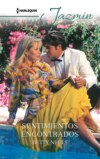Buch lesen: «Caroline's Waterloo»
“You’ve hated every minute of it, haven’t you, Radinck?
“But I’m going to my room in a few minutes, only before I go, I’d like to thank you for giving me such a nice wedding.” She added kindly, “It’s only this one evening, you know, you won’t have to do it ever again. You asked me not to disturb your life, and I won’t, only they all expected…” She pinkened faintly. “Well, they expected us to look—like…”
“Exactly, Caroline.” He had got to his feet. “I’m only sorry that I didn’t think of the wedding cake.” He smiled at her: it was a kind, gentle sort of smile and it held a touch of impatience. She said good night without fuss and didn’t linger. She thought about that smile later, as she got ready for bed. It had been a glimpse of Radinck again, only next time, she promised herself, he would smile without impatience. It might take a long time, but that was something she had.
Romance readers around the world were sad to note the passing of Betty Neels in June 2001. Her career spanned thirty years, and she continued to write into her ninetieth year. To her millions of fans, Betty epitomized the romance writer, and yet she began writing almost by accident. She had retired from nursing, but her inquiring mind still sought stimulation. Her new career was born when she heard a lady in her local library bemoaning the lack of good romance novels. Betty’s first book, Sister Peters in Amsterdam, was published in 1969, and she eventually completed 134 books. Her novels offer a reassuring warmth that was very much a part of her own personality. She was a wonderful writer, and she will be greatly missed. Her spirit and genuine talent will live on in all her stories.
Caroline’s Waterloo
Betty Neels

MILLS & BOON
Before you start reading, why not sign up?
Thank you for downloading this Mills & Boon book. If you want to hear about exclusive discounts, special offers and competitions, sign up to our email newsletter today!
Or simply visit
Mills & Boon emails are completely free to receive and you can unsubscribe at any time via the link in any email we send you.
CONTENTS
CHAPTER ONE
CHAPTER TWO
CHAPTER THREE
CHAPTER FOUR
CHAPTER FIVE
CHAPTER SIX
CHAPTER SEVEN
CHAPTER EIGHT
CHAPTER NINE
CHAPTER ONE
THE NARROW brick road wound itself along narrow canals, through wide stretches of water meadows and small clumps of trees and, here and there, a larger copse. Standing well away from the road there were big farmhouses, each backed by a great barn, their mellow red brick glistening in the last rays of the October sun. Save for the cows, already in their winter coats, and one or two great horses, there was little to be seen and the only other movement was made by the four girls cycling briskly along the road. They had come quite a distance that day and now they were flagging a little; the camping equipment each carried made it heavy going, and besides, they had lost their way.
It had been easy enough leaving Alkmaar that morning, going over the Afsluitdijk and into Friesland, pedalling cheerfully towards the camping ground they had decided upon, but now, with no village in sight and the dusk beginning to creep over the wide Friesian sky, they were getting uneasy.
Presently they came to a halt, to look at the map and wonder where they had gone wrong. ‘This doesn’t go anywhere,’ grumbled the obvious leader, a tall, very pretty girl. ‘What shall we do? Go back—and that’s miles—or press on?’
They all peered at the map again, one fair head, two dark ones and an unspectacular mouse-brown. The owner of the mouse-brown hair spoke:
‘Well, the road must go somewhere, they wouldn’t have built it just for fun, and we’ve been on it now for quite a while—I daresay we’re nearer the end than the beginning.’ She had a pretty voice, soft and slightly hesitant, perhaps as compensation for her very ordinary face.
Her three companions peered at the map again. ‘You’re right, Caro—let’s go on before it’s quite dark.’ The speaker, one of the dark-haired girls, glanced around her at the empty landscape. ‘It’s lonely, isn’t it? I mean, after all the towns and villages we’ve been through just lately.’
‘Friesland and Groningen are sparsely populated,’ said Caro, ‘they’re mostly agricultural.’
The three of them gave her a tolerant look. Caro was small and quiet and unassuming, but she was a fount of information about a great many things, because she read a lot, they imagined with a trace of pity; unlike the other nurses at Oliver’s, she was seldom invited to go out by any of the young doctors and she lived alone in a small bedsitter in a horrid shabby little street convenient to the hospital. She had any number of friends, because she could be relied upon to change off-duty at a moment’s notice, lend anything needed without fuss, and fill in last-minute gaps. As she was doing now; the nurse who should have been in her place had developed an appendix and because four was a much better number with which to go camping and biking, she had been roped in at the last minute. She hadn’t particularly wanted to go; she had planned to spend her two weeks’holiday redecorating her room and visiting art galleries. She knew almost nothing about art, but she had discovered long ago that art galleries were restful and pleasant and there were always other people strolling around for company, even though no one ever spoke to her. Not that she minded being alone; she had grown up in a lonely way. An orphan from childhood, the aunt she had lived with had married while Caro was still at school and her new uncle had never taken to her; indeed, over the years, he had let it be known that she must find a home for herself; her aunt’s was too small to house all three of them. If she had been pretty he might have thought differently, and if she had tried to conciliate him he might have had second thoughts. As it was, Caroline hadn’t seen her aunt for two years or more.
‘Well, let’s get on,’ suggested Stacey. She tossed her blonde hair back over her shoulders and got on to her bike once more, followed by Clare and Miriam with Caro bringing up the rear.
The sun seemed to set very rapidly and once it had disappeared behind them, the sky darkened even more rapidly. But the road appeared to run ahead of them, clearly to be seen until it disappeared into a large clump of trees on the horizon. There were distant lights from the farmhouse now, a long way off, but they dispelled the loneliness so that they all became cheerful again, calling to and fro to each other, discussing what they would eat for their supper and whose turn it was to cook. They reached the trees a few minutes later, and Stacey, still in front, called out excitedly: ‘I say, look there, on the left—those lights—there must be a house!’ She braked to take a better look and Clare and Miriam, who hadn’t braked fast enough, went into her, joined seconds later by Caro, quite unable to stop herself in time. She ploughed into the struggling heap in front of her, felt a sharp pain in her leg and then nothing more, because she had hit her head on an old-fashioned milestone beside the cycle path.
She came to with a simply shocking headache, a strange feeling that she was in a nightmare, and the pain in her leg rather worse. What was more, she was being carried, very awkwardly too, with someone supporting her legs and her head cradled against what felt like an alpaca jacket—but men didn’t wear alpaca jackets any more. She tried to say so, but the words didn’t come out right and she was further mystified by a man’s cockney voice close to her ear, warning someone to go easy. She wanted to say, ‘My leg hurts,’ but talking had become difficult and when she made her eyes open, she could see nothing much; a small strip of sky between tall trees and somewhere ahead lights shining. She gave up and passed out again, unaware that the awkward little party had reached the house, that Stacey, obedient to the cockney voice, had opened the door and held it wide while the others carried her inside. She was unaware too of the size and magnificence of the hall or of its many doors, one of which was flung open with some force by a large man with a sheaf of papers in his hand and a scowl on his handsome features. But she was brought back to consciousness by his commanding voice, demanding harshly why he was forced to suffer such a commotion in his own house.
It seemed to Caro that someone should speak up and explain, but her head was still in a muddle although she knew what she wanted to say; it was just a question of getting the words out. She embarked on an explanation, only to be abruptly halted by the harsh voice, very close to her now. ‘This girl’s concussed and that leg needs attention. Noakes, carry her into the surgery.’ She heard his sigh. ‘I suppose I must attend to it.’
Just for a moment her addled brain cleared. She said quite clearly: ‘You have no need to be quite so unfeeling. Give me a needle and thread and I’ll do it myself.’
She heard his crack of laughter before she went back into limbo again.
She drifted in and out of sleep several times during the night and each time she opened her eyes it was to see, rather hazily, someone sitting by her bed. He took no notice of her at all, but wrote and read and wrote again, and something about his austere look convinced her that it was the owner of the voice who had declared that she was concussed.
‘I’m not concussed,’ she said aloud, and was surprised that her voice sounded so wobbly.
He had got to his feet without answering her, given her a drink and said in a voice which wasn’t going to take no for an answer: ‘Go to sleep.’
It seemed a good idea; she closed her eyes.
The next time she woke, although the room was dim she knew that it was day, for the reading lamp by the chair was out. The man had gone and Stacey sat there, reading a book.
‘Hullo,’ said Caro in a much stronger voice; her head still ached and so did her leg, but she had stopped feeling dreamlike.
Stacey got up and came over to the bed. ‘Caro, do you feel better? You gave us all a fright, I can tell you!’
Caro looked carefully round the room, trying not to move her head because of the pain. It was a splendid apartment, its walls hung with pale silk, its rosewood furniture shining with age and polishing. The bed she was in had a draped canopy and a silken bedspread, its beauty rather marred by the cradle beneath it, guarding her injured leg.
‘What happened’ she asked. ‘There was a very cross man, wasn’t there?’
Stacey giggled. ‘Oh, ducky, you should have heard yourself! It’s an enormous house and he’s so good-looking you blink…’
Caroline closed her eyes. ‘What happened?’
‘We all fell over, and you cut your leg open on Clare’s pedal—it whizzed round and gashed it badly, and you fell on to one of those milestones and knocked yourself out.’
‘Are you all right? You and Clare and Miriam?’
‘Absolutely, hardly a scratch between us—only you, Caro—we’re ever so sorry.’ She patted Caro’s arm. ‘I’ve got to tell Professor Thoe van Erckelens you’re awake.’
Caro still had her eyes shut. ‘What an extraordinary name…’
Her hand was picked up and her pulse taken and she opened her eyes. Stacey had gone, the man—presumably the Professor—was there, towering over her.
He grunted to himself and then asked: ‘What is your name, young lady?’
‘Caroline Tripp.’ She watched his stern mouth twitch at the corners; possibly her name sounded as strange to him as his did to her. ‘I feel better, thank you.’ She added, ‘It was kind of you to sit with me last night.’
He had produced an ophthalmoscope from somewhere and was fitting it together. ‘I am a doctor, Miss Tripp—a doctor’s duty is to his patient.’
Unanswerable, especially with her head in such a muddled state. He examined her eyes with care and silently and then spoke to someone she couldn’t see. ‘I should like to examine the leg, please.’
It was Stacey who turned back the coverlet and removed the cradle before unwinding the bandage which covered Caro’s leg from knee to ankle.
‘Did you stitch it?’ asked Caro, craning her neck to see.
A firm hand restrained her. ‘You would be foolish to move your head too much,’ she was told. ‘Yes, I have cleaned and stitched the wound in your leg. It is a deep, jagged cut and you will have to rest it for some days.’
‘Oh, I can’t do that,’ said Caro, still not quite in control of her woolly wits, ‘I’m on duty in four days’ time.’
‘An impossibility—you will remain here until I consider you fit to return.’
‘There must be a hospital…’ Her head was beginning to throb.
‘As a nurse you should be aware of the importance of resting both your brain and your leg. Kindly don’t argue.’
She was feeling very peculiar again, rather as though she were lying in a mist, listening to people’s voices but quite unable to focus them with her tired eyes. ‘You can’t possibly be married,’ she mumbled, ‘and you sound as though you hate me—you must be a mi—mi…’
‘Misogynist.’
She had her eyes shut again so that she wouldn’t cry. He was being very gentle, but her leg hurt dreadfully; she was going to tell him so, but she dropped off again.
Next time she woke up it was Clare by the bed and she grinned weakly and said: ‘I feel better.’
‘Good. Would you like a cup of tea?—it’s real strong tea, like we make at Oliver’s.’
It tasted lovely; drinking it, Caroline began to feel that everything was normal again. ‘There’s some very thin bread and butter,’ suggested Clare. Caro devoured that too; she had barely swallowed the last morsel before she was asleep again.
It was late afternoon when she woke again. The lamp was already lighted and the Professor was sitting beside it, writing. ‘Don’t you have any patients?’ asked Caroline.
He glanced up from his writing. ‘Yes. Would you like a drink?’
She had seen the tray with a glass and jug on it, on the table by her bed. ‘Yes, please—I can help myself; I’m feeling fine.’
He took no notice at all but got up, put an arm behind her shoulders, lifted her very gently and held the glass for her. When she had finished he laid her down again and said: ‘You may have your friends in for ten minutes,’ and stalked quietly out of the room.
They crept in very silently and stood in a row at the foot of the bed, looking at her. ‘You’re better,’ said Miriam, ‘the Professor says so.’ And then: ‘We’re going back tomorrow morning.’
Caro tried to sit up and was instantly thrust gently back on to her pillow. ‘You can’t—you can’t leave me here! He doesn’t like me—why can’t I go to hospital if I’ve got to stay? How are you going?’
‘Noakes—that’s the sort of butler who was at the gate when we fell over—he’s to drive us to the Hoek. The bikes are to be sent back later.’
‘He’s quite nice,’ said Clare, ‘the Professor, I mean—he’s a bit terse but he’s been a perfect host. I don’t think he likes us much but then of course, he’s quite old, quite forty, I should think; he’s always reading or writing and he’s away a lot—Noakes says he’s a very important man in his profession.’ She giggled, ‘You can hardly hear that he’s Dutch, his English is so good, and isn’t it funny that Noakes comes from Paddington? but he’s been here for years and years—he’s married to the cook. There’s a housekeeper too, very tall and looks severe but she’s not.’
‘And three maids besides a gardener,’ chimed in Miriam. ‘He must be awfully rich.’
‘You’ll be OK,’ Stacey assured her, ‘you’ll be back in no time. Do you want us to do anything for you?’
Caro’s head was aching again. ‘Would you ask Mrs Hodge to go on feeding Waterloo until I get back? There’s some money in my purse—will you take some so that she can get his food?’
‘OK—we’ll go round to your place and make sure he’s all right. Do you have to pay Mrs Hodge any rent?’
‘No, I pay in advance each month. Is there enough money for me to get back by boat?’
Stacey counted. ‘Yes—it’s only a single fare and I expect Noakes will take you to the boat.’ She came a bit nearer. ‘Well, ’bye for now, Caro. We hate leaving you, but there’s nothing we can do about it.’
Caro managed a smile. ‘I’ll be fine—I’ll let you know when I’m coming.’
They all shook hands with her rather solemnly. ‘We’re going quite early and the Professor said we weren’t to disturb you in the morning.’
Caroline lay quietly after they had gone, too tired to feel much. Indeed, when the Professor came in later and gave her a sedative she made no demur but drank it down meekly and closed her eyes at once. It must have been quite strong because she was asleep at once, although he stayed for some time, sitting in his chair watching her, for once neither reading nor writing.
She didn’t wake until quite late in the morning, to find Noakes’ wife—Marta—standing by the bed with a small tray. There was tea again and paper-thin bread and butter and scrambled egg which she fed Caro with just as though she were a baby. She spoke a little English too, and Caro made out that her friends had gone.
When Marta had gone away, she lay and thought about it; she felt much more clear-headed now, almost herself, but not quite, otherwise she would never have conceived the idea of getting up, getting dressed, and leaving the house. She couldn’t stay where she wasn’t welcome—it was like her uncle all over again. Perhaps, she thought miserably, there was something about her that made her unacceptable as a guest. She was on the plain side, that she already knew, and perhaps because of that she was self-effacing and inclined to be shy. She had quickly learned not to draw attention to herself, but on the other hand she had plenty of spirit and a natural friendliness which had made her a great number of friends. But the Professor, she felt, was not one of their number.
The more she thought of her scheme, the more she liked it; the fact that she had a considerable fever made it seem both feasible and sensible, although it was neither. She began, very cautiously, to sit up. Her head ached worse than ever, but she ignored that and concentrated on moving her injured leg. It hurt a good deal more than she had expected, but she persevered until she was sitting untidily on the edge of the bed, her sound foot on the ground, its stricken fellow on its edge. It had hurt before; now, when she started to dangle it over the side of the bed, the pain brought great waves of nausea sweeping over her.
‘Oh, God!’ said Caro despairingly, and meant it.
‘Perhaps I will do?’ The Professor had come softly into the room, taking great strides to reach her.
‘I’m going to be sick,’ moaned Caro, and was, making a mess of his beautifully polished shoes. If she hadn’t felt so ill she would have died of shame, as it was she burst into tears, sobbing and sniffing and gulping.
The Professor said nothing at all but picked her up and laid her back in bed again, pulling the covers over her and arranging the cradle just so over her injured leg before getting a sponge and towel from the adjoining bathroom and wiping her face for her. She looked at him round the sponge and mumbled: ‘Your shoes—your lovely shoes, I’m so s-sorry.’ She gave a great gulp. ‘I should have gone with the others.’
‘Why were you getting out of bed?’ He didn’t sound angry, only interested.
‘Well, I thought I could manage to dress and I’ve enough money, I think—I was going back to England.’
He went to the fireplace opposite the bed and pressed the brass wall bell beside it. When Noakes answered it he requested a clean pair of shoes and a tray of tea for two and waited patiently until these had been brought and Noakes, accompanied by a maid, had swiftly cleared up the mess. Only then did he say: ‘And now suppose we have a little talk over our tea?’
He pulled a chair nearer the bed, handed her a cup of tea and poured one for himself. ‘Let us understand each other, young lady.’
Caroline studied him over the rim of her cup. He talked like a professor, but he didn’t look like one; he was enormous and she had always thought of professors as small bent gentlemen with bald heads and untidy moustaches, but Professor Thoe van Erckelens had plenty of hair, light brown, going grey, and cut short, and he had no need to hide his good looks behind a moustache. Caro thought wistfully that he was exactly the kind of man every girl hoped to meet one day and marry; which was a pity, because he obviously wasn’t the marrying kind…
‘If I might have your full attention?’ enquired the Professor. ‘You are sufficiently recovered to listen to me?’
Her head and her leg ached, but they were bearable. She nodded.
‘If you could reconcile yourself to remaining here for another ten days, perhaps a fortnight, Miss Tripp? I can assure you that you are in no fit condition to do much at the moment. I shall remove the stitches from your leg in another four days and you may then walk a little with a stick, as from tomorrow, and provided your headache is lessening, you may sit up for a period of time. Feel free to ask for anything you want, my home is at your disposal. There is a library from which Noakes will fetch a selection of books, although I advise you not to read for a few days yet, and there is no reason why you should not sit in the garden, well wrapped up. You will drink no alcohol, nor will you smoke, and kindly refrain from watching television for a further day or so; it will merely aggravate your headache. I must ask you to excuse me from keeping you company at any time—I am a busy man and I have my work and my own interests. I shall of course treat you as I would any other patient of mine and when I consider you fit to travel, I will see that you get back safely to your home.’
Caro had listened to this precise speech with astonishment; she hadn’t met anyone who talked like that before—it was like reading the instructions on the front of a medicine bottle. She loved the bit about no drinking or smoking; she did neither, but she wondered if she looked the kind of girl who did. But one thing was very clear. The Professor was offering her hospitality but she was to keep out of his way; he didn’t want his ordered life disrupted—which was amusing really; now if it had been Clare or Stacey or Miriam, all pretty girls who had never lacked for men friends, that would have been a different matter, but Caroline’s own appearance was hardly likely to cause even the smallest ripple on the calm surface of his life.
‘I’ll do exactly as you say,’ she told him, ‘and I’ll keep out of your way—you won’t know I’m here. And thank you for being so kind.’ She added: ‘I’m truly sorry about me being sick and your shoes…’
He stood up. ‘Sickness is to be expected in cases of concussion,’ he told her. ‘I am surprised that you, a nurse, should not have thought of that. We must make allowances for your cerebral condition.’
She looked at him helplessly. Underneath all that pedantic talk there was a quite ordinary man; for some reason, the professor was concealing him. After he had gone she lay back on her pillows, suddenly sleepy, but before she closed her eyes she decided that she would discover what had happened to make him like that. She must make friends with Noakes…
She made splendid progress. The Professor dressed her leg the next morning and when Marta had draped her in a dressing gown several sizes too large for her, he returned to lift her into a chair by the open window, for the weather was glorious and the view from it delightful. The gardens and the house were large and full of autumn colours, and just to lie back with Marta tucking a rug over her and settling her elevenses beside her was bliss. She had been careful to say very little to the Professor while he attended to her leg; he had made one or two routine remarks about the weather and how she felt and she had answered him with polite brevity, but now he had gone and despite his silence, she felt lonely. She sipped the warm milk Marta had left for her and looked at the view. The road was just visible beyond the grounds and part of the drive which led to it from the house; presently she heard a car leaving the house and caught a glimpse of it as it flashed down the drive: an Aston Martin—a Lagonda. The Professor must have a friend who liked fast driving. Caro thought that it might be rather fun to know someone who drove an Aston Martin, and even more fun to actually ride in one.
She was to achieve both of these ambitions. The Professor came as usual the following morning after breakfast to dress her leg, but instead of going away immediately as he usually did he spoke to Juffrouw Kropp who had accompanied him and then addressed himself to Caro.
‘I am taking you to the hospital in Leeuwarden this morning. You are to have your head X-rayed. I am certain that no harm has come from your concussion, but I wish my opinion to be confirmed.’
Caro eyed him from the vast folds of her dressing gown. ‘Like this?’ she asked.
He raised thick arched brows. ‘Why not? Juffrouw Kropp will assist you.’ He had gone before she could answer him.
Juffrouw Kropp’s severe face broke into a smile as the door closed. She fetched brush and comb and make-up and produced a length of ribbon from a pocket. She brushed Caro’s hair despite her protests, plaited it carefully and fastened it with the ribbon, fetched a hand mirror and held it while Caro did things to her face, then fastened the dressing gown and tied it securely round Caro’s small waist. Like a well-schooled actor, the Professor knocked on the door, just as though he had been given his cue, plucked Caro from the bed and carried her downstairs where Noakes stood, holding the front door wide. The Professor marched through with a muttered word and Noakes slid round him to open the door of the Aston Martin, and with no discomfort at all Caro found herself reclining on the back seat with Noakes covering her with a light rug and the Professor, to her astonishment, getting behind the wheel.
‘This is never your car?’ she asked, too surprised to be polite.
He turned his head and gave her an unfriendly look. ‘Is there any reason why it shouldn’t be?’ he wanted to know, coldly.
She said kindly: ‘You don’t need to get annoyed. It’s only that you don’t look the kind of man to drive a fast car.’ She added vaguely: ‘A professor…’
‘And no longer young,’ he snapped. ‘I have no interest in your opinions, Miss Tripp. May I suggest that you close your eyes and compose yourself—the journey will take fifteen minutes.’
Caroline did as she was bid, reflecting that until that very moment she hadn’t realised what compelling eyes he had; slate blue and very bright. When she judged it safe, she opened her eyes again; she wasn’t going to miss a second of the ride; it would be something to tell her friends when she got back. She couldn’t see much of the road because the Professor took up so much of the front seat, but the telegraph poles were going past at a terrific rate; he drove fast all right and very well, and he didn’t slow at all until she saw buildings on either side of them and presently he was turning off the road and stopping smoothly.
He got out without speaking and a moment later the door was opened and she was lifted out and set in a wheelchair while the Professor spoke to a youngish man in a white coat. He turned on his heel without even glancing at her and walked away, into the hospital, leaving her with the man in the white coat and a porter.
How rude he is, thought Caro, and then: poor man, he must be very unhappy.
She was wheeled briskly down a number of corridors to the X-ray department. It was a modern hospital and she admired it as they went, and after a minute or so, when the white-coated man spoke rather diffidently to her in English, showered him with a host of questions. He hadn’t answered half of them by the time they reached their destination and she interrupted him to ask: ‘Who are you?’
He apologised. ‘I’m sorry, I have not introduced myself. Jan van Spaark—I am attached to Professor Thoe van Erckelens’ team. I am to look after you while you are here.’
‘A doctor?’
He nodded. ‘Yes, I think you would call me a medical registrar in your country.’
The X-ray only took a short while, and in no time at all she was being wheeled back to the entrance hall, but here, to her surprise, her new friend wished her goodbye and handed her over to a nurse, who offered a hand, saying: ‘Mies Hoeversma—that is my name.’
Caro shook it. ‘Caroline Tripp. What happens next?’
‘You are to have coffee because Professor Thoe van Erckelens is not quite ready to leave.’
She was wheeled to a small room, rather gloomy and austerely furnished used, Mies told her, as a meeting place for visiting doctors, but the coffee was hot and delicious and Mies, although her English was sketchy, was a nice girl. Caro, who had been lonely even though she hadn’t admitted it to herself, enjoyed herself. She could have spent the morning there, listening to Mies describing life in a Dutch hospital and giving her a lighthearted account of her own life in London, but the door opened, just as they had gone off into whoops of mirth over something or other, and the porter reappeared, spoke to Mies and wheeled Caro rapidly away, giving her barely a moment in which to say goodbye.
‘Why the hurry?’ asked Caro, hurriedly shaking hands again.
‘The Professor—he must not be kept waiting.’ Mies was quite serious; evidently he had the same effect on the hospital staff as he had on his staff at home. Instant, quiet obedience—and yet they liked him…
Der kostenlose Auszug ist beendet.




























